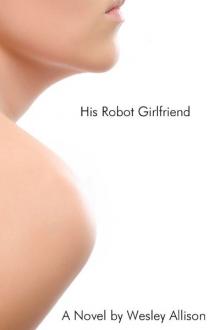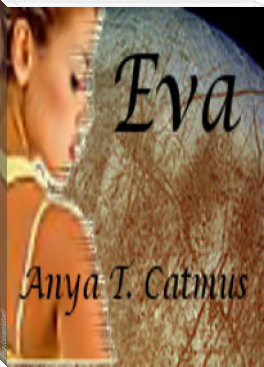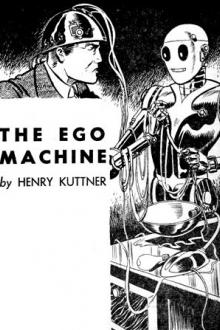The Boy Who Fell from the Sky - Jule Owen (english love story books TXT) 📗

- Author: Jule Owen
- Performer: -
Book online «The Boy Who Fell from the Sky - Jule Owen (english love story books TXT) 📗». Author Jule Owen
26 The Empty Cell
Colonel Borodin’s camp is packed up. His pilots are checking the engine of the chopper. It’s early morning, and the men in Dragomirov’s camp are waking, taking showers, preparing to go into the mess hall. Borodin decides to go to Dragomirov directly to check on the status of the authorisation he knows will never come and to collect his prisoner.
Churkin, experiencing a rare pang of conscience, has gone down to the prison block to check on Evgeny. He stops dead. The wooden cage is empty. The door to the prison block is ajar, and he strides in. The guard is still asleep. Kicking him awake, Churkin rushes past him to the cell, which he also finds empty, and raises the alarm.
Borodin reaches the prison block in the middle of a scene of some chaos.
Dragomirov is interrogating the sleeping guard.
“You are wasting your energy hitting him, Colonel. He doesn’t know anything,” Borodin says.
“This is not your command, Colonel,” growls Dragomirov.
“No, it’s not. But you’ve lost my prisoner.” Borodin walks into the prison block and slowly examines the cells, the locks on the door, then goes outside to examine the wooden cage Evgeny was locked in.
“There was a man in here?” he asks.
No one responds.
Smiling wryly, shaking his head, he says, “Of course, your spy.”
At the edge of the prison block he crouches down, touching the ground gently with his fingers.
Dragomirov and his men stop paying attention to Borodin and go back to interrogating the guard.
Borodin moves along the edge of the prison block and scans across the cleared land to the forest edge. Slowly, he paces towards the trees, stopping every now and then to stoop and examine the ground. Then he disappears under a canopy of leaves.
Standing next to the chopper, in what remains of Borodin’s camp, Yolkov watches his colonel walk towards the forest and calls to another soldier hauling their rations into the back of the chopper.
“Don’t bother, Istomin,” Yokov says. “The colonel will be a while. Let’s brew some tea.”
Borodin stands on the edge of the jungle, his keen eyes raking about with a hunting look. Dead ahead, under the cover of a low-growing palm, he spots something not quite right. He walks directly to it, lifts a branch and then the banana leaves, and peers down into the shaft.
He doesn’t need a torch. He sees in the dark perfectly.
27 Kindness
Mathew is starving, and the food is the best he has eaten since he left home. There are all kinds of breads, jams, pancakes, yoghurts, and fruit, even. Tristan’s people sit around large tables to eat. The food is served buffet-style. People load up their own plates and find a place. There are coffee, teas, fruit juice, and fresh water on the tables. Evgeny is tucking in to a huge plateful of practically everything. He is glowing with happiness.
“I haven’t eaten like this since I left Moscow,” he says. “In fact, we didn’t eat this well in Moscow.”
They are sitting with Tristan and all of his brothers. It turns out he has a lot more than the three Mathew had already met. There are twelve in all. Gower, the oldest, is nearly forty; Dom, the youngest, is eighteen. Only half of them are married with children, but they still have a formidable extended family. Some of the smallest members are playing under the tables, crawling about between the legs of people who are getting their breakfast.
“The rest of us would like to get married,” Tristan says, “but there is a shortage of women.”
“Speak for yourself,” Dom says. “I don’t want to get married.”
“Okay, the rest of us, apart from Dom.”
Evgeny, between mouthfuls of muffin, says, “There was never a man with so many sons. These days a person is lucky if he has one child, girl or boy. Who is this fertile man?”
Evgeny is expecting to have some hulking, virile-looking man pointed out to him, but the sons all indicate the next table, where their father sits.
“That is Peter, our father,” Tristan says.
He is a small, thin, delicately framed man, who appears far too young to have produced so many children. In fact, he appears younger than some of his sons. His wife appears to be considerably older, and no wonder, thinks Evgeny. The father of twelve smiles at them and raises his hand in a half-wave.
“How old was he when the first one of you was born?” Evgeny asks, shocked.
“Dad was in his early twenties when Gower was born. He’s sixty-two now.”
“No! You are pulling our legs,” and Evgeny starts to laugh, muffin spraying everywhere.
Nothing the sons say convinces Evgeny.
Mathew gapes at Tristan. “You’re serious, aren’t you?” Tristan nods, and this sends Evgeny into more spasms of laughter.
“He’s messing with you, Mathew.”
Tristan shakes his head slightly and shrugs.
Mathew says, “How do you talk to me through my e-Pin?” He touches the earring in his left ear. “You don’t have them.”
“We all have implants. They’re more advanced versions of the communications technology used in your e-Pin. The technology we use allows us to intercept brain signals.”
“You’re reading my mind?”
“No. Properly reading someone’s mind requires a more advanced set of technologies than we’re able to leverage reliably right now. Plus, there are ethical issues, and human brains aren’t yet evolved enough to handle the psychological impact.
“We’re intercepting the brain signals for speech. We create public conversations inaudible to anyone outside of the group, or we create private conversations between two people. It’s very useful in situations where we need to communicate but speaking aloud would be dangerous, like when we rescued you. We hijacked the more primitive technology in your e-Pin to enable us to talk to you and for it to intercept and transmit your speech signals, as you experienced.”
“How do you do that? If I want a machine to read my brain signals, I need to wear a synthetic telepathy cap full of electrodes and a signal amplifier.”
“Nano-technology,” Tristan says.
“Tiny invisible flying machines,” says Dom. “We sent them to rewire your e-Pin and a tiny bit of your brain.”
Evgeny is stricken.
Tristan says to Mathew, “Implants are enhancements banned by most governments.”
Evgeny says, “Why are you explaining this to him? He must know this. Doesn’t the ATLAS government ban enhancements, too?”
“I don’t know,” Mathew says.
“People in the Atlantic states, or ATLAS, where England is now, and the Federation of Free Republics, where Evgeny is from, are allowed wearable technology like yours, but it’s considered an abomination to do anything to actually amend your body. We don’t agree with this. Most of us have amended our eyes to allow us to enjoy improvements in vision and also augmented reality, a bit like the Lenzes you’re wearing, Mathew. We all have biobots, like you, although several generations more advanced. Most of us have enhanced cognitive functions, hearing, physical fitness, mental health, and general wellness. We have daily access to technologies across a range of areas outlawed in most of the so-called more civilised world, and we have spent the last forty years developing them.”
Dom says, “Not all of us need enhancements.”
Frey, one of Tristan’s older brothers, says, “But it’s a long story and not one for breakfast.”
Evgeny asks, “What are a bunch of ATLAS people doing in a mountain in Russia, anyway?”
“We’re not ATLAS people,” Dom says. “We’re Non Grata. The Non Grata aren’t part of your war. We don’t care about national boundaries.”
“But why come here in the first place?”
“We were escorting someone on a journey. Then we bumped into your Mr Dragomirov, Evgeny.”
“You are the maggots we were tracking!” Evgeny says. He gawps wonderingly. “Do you have the girl here?”
“No. She’s gone. She left Russia four months ago with some of our party.”
“Left Russia?”
“She crossed the Bering Strait. She’s now in ATLAS territory. She’ll be settling down underground like us for the duration, and then when everything is clear, she’ll be completing her journey. She still has a long way to go. We’ll follow her eventually.”
“You know where she is?”
“Of course.”
“By using your technology? Your enhancements?”
“Partly.”
“Why did you stay? Why didn’t you go with her?”
“To distract Mr Dragomirov and take him off our friend’s scent. He was tracking us for several months. We send parties to take him on long detours. The majority of us stayed here to build this place. Mr Dragomirov followed us to this region. We were out on one last patrol before retreating to the mountain when we discovered Mathew.”
“How did you find Mathew?”
Tristan turns to Mathew. “We came across you and the big cat. We were watching when one of Mr Dragomirov’s men fired his gun. We decided to wait until the fuss died down and made the plan to rescue you.”
Mathew asks Evgeny, “Why were you chasing this girl?”
Evgeny glances at the others, looks uncomfortable, and says, “Dragomirov captured the girl a year ago. There are routine tests of identity run on people. You experienced them yourself. When these were run on her, there were strange results. Like you, this girl was supposed to be dead. She was a former citizen of an ATLAS city, cast out and deleted. They checked for enhancements. She didn’t have any obvious technology implants. She didn’t have a medibot, like you, but many of her results were very strange. Her brain scans revealed extraordinary activity, and her body seemed to have an endless capacity for regeneration and self-healing. Dragomirov thought she was some kind of highly secret advanced military technology developed by ATLAS. None of our intelligence found anything like this, but ATLAS always has the capacity to surprise. Dragomirov was taking the girl to Moscow when she escaped.”
“She is not military technology,” Dom says.
“I never thought she was,” Evgeny says.
Tristan says, “Mathew, I hope you don’t mind, but when we were bathing, I noticed you have a dressing on your arm. You have an injury.”
Mathew puts his hand to his shoulder instinctively. “Yes. The cat scratched me.”
Evgeny says, “Some scratch! We stitched it at the camp.”
Tristan says, “Our father is a healer. Why don’t you let him examine it?”
After breakfast, one of Tristan’s brothers takes Evgeny for a tour of the kitchens.
Tristan speaks to his father, who turns and beckons to Mathew. He smiles as Mathew approaches, and the three walk together towards the back of the large cavern, through groups of people standing and talking after breakfast, and then up a few steps to a room carved into the rock.
The floor of the room is decorated with brightly coloured rugs and cushions. Tristan stands by the door, leaning against the frame, his arms crossed, looking out, as if giving them some privacy. Peter gestures to Mathew to sit on one of the cushions, and he does the same. There’s music playing faintly in the background, piano music Mathew recognises but can’t name. He glances with surprise at Peter.
“What did you expect?” Peter asks, and he smiles, his eyes sparkling.
Mathew smiles back, but he is unnerved. In spite of what Tristan said earlier, Peter has read his mind.
At close quarters, Mathew is able to observe Peter properly. He appears no older than Tristan, perhaps even younger, and has an incredibly calm, slow





Comments (0)